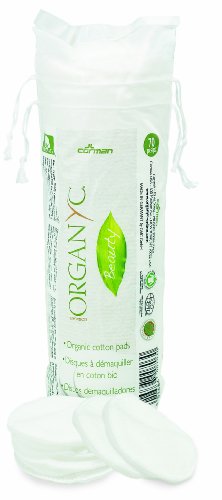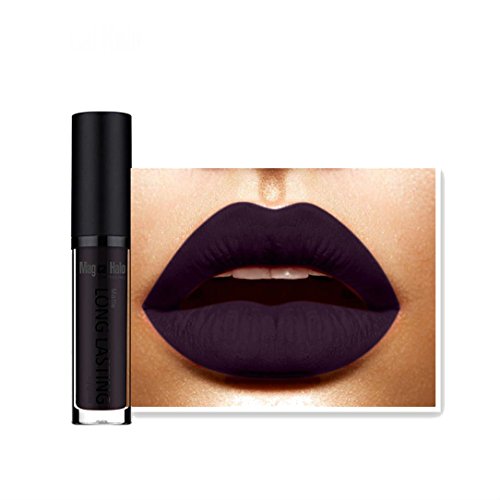| Disclosure: The links on this page are "Affiliate Links" and while these are shown at no costs to our viewers, they generate commissions for our website(s) |
Why Hand Sanitizer is Important?
As a society, we’ve developed a strong pursuit toward hygiene that puts our ancestors to shame. From the increased number of showers and hair cleansing to the amount of times we break out bottles of cleaner, there’s an interest in staying clean that people from centuries before modern conveniences couldn’t accomplish. But beyond all of these general details and ideas, there’s a specific addition to our hygiene arsenal that seems to have become a staple of life for plenty of people, and that addition is hand sanitizer.
At face value, having a bottle of hand sanitizer with you all of the time sounds fantastic. No matter what happens while you’re out, you have a source of cleaner at your disposal to kill bacteria. It’s a germaphobe’s dream, and it’s entirely possible to take the use of hand sanitizer to the extreme of using it after handshakes or on the steering wheel of your own car (Nies, Prone, & Santichen, 2009). The argument is that doing so is safe because the alcohol that gives the cleaner its strength, supposedly doesn’t come with the possibility of “germs becoming resistant to” (Nies, Prone, & Santichen, 2009) it. So, all in all, it seems like a good system for giving your hands a fast, effective cleansing at random intervals during the day. Right?

Well, jumping full force onto the hand sanitizer bandwagon does come with its negative sides to consider before you start carrying it around in your pocket and using it every half hour. Those side effects can begin with the larger-scale factor of how clean, overall, is realistically too clean. That’s right! Studies show that despite the modern striving to get everything as germ-free as possible, there is such a thing as being too clean.
One reason for that detail is that your body needs certain germs to function at its best, and when you systematically strive to kill all of them, you’re taking out some of those good-for-you germs along with the ones that are likely to make you sick. It seems “that the trillions of bacteria that live in and on our bodies play a critical role in our health…by helping us to digest food, fight off disease-causing bugs, and more” (Park, 2014, para. 3). If these germs—which reportedly “outnumber human cells 10 to 1” (Park, 2012, para. 2)—truly do assist us in these manners, removing them from our health equations would be poor strategy for maintaining good health. Specifically, eliminating every bacterial detail in your body can lower the effectiveness of your immune system, as is evidenced by “a 2011 study by the Centers for Disease Control [that] found that healthcare workers who routinely used hand sanitizers increased their risk of developing norovirus by almost 600 percent” (Hubbard, 2014, section #6).
In essence, an overabundance of trying to kill all germs could damage your health because of all of the bacteria that didn’t need to die, but were casualties of your cleaning crusade. With that in mind, it’s a logical jump to decide that breaking out hand sanitizer every time you shake hands with a stranger or touch a doorknob could be counterproductive for remaining healthy. That too-common use of the sanitizer and its targeted combat against germs in general is ransacking your cells, regardless of how good or bad they are for you, with every use. Let’s say you use hand sanitizer every ten minutes. That’s six times an hour. If you sleep eight hours a night, that leaves sixteen waking hours at six uses for every one of them. That’s 96 times in one day that you’re massacring good bacteria along with the bad.
Furthermore, the detail mentioned earlier—that the alcohol used in the sanitizers can’t become ineffective to bacteria—makes for a stronger reason as to why using the sanitizer so many times in a day could be dangerous. It’s alcohol as the primary cleaner, after all. In order for the sanitizer to clean at its best, “the concentration of the alcohol in the bottle needs to be above 60%” (Sampath, 2015, section #1). This is the equivalent of the alcohol concentration of Cask Strength Whiskey (“Alcohol Content Strength,” n.d.). In that context, as concerns alcohol percentages, you might as well be pouring specific whiskey on your hands to clean them, so much that “[a] few squirts of hand sanitizer could equal a couple of shots of hard liquor” (Fukushima, 2014, section #4). Will it get your hands clean? Well, technically, it will kill germs! But most people might wonder what the trade-off would be in regard to what would happen to your hands by pouring whiskey on them 96 times a day.
Well, beyond the earlier noted problems of killing good cells, sanitizer and its alcohol component can damage your skin, making it “rougher than normal” (Sampath, 2015, section #8). It can also “break down the protective outer layers of skin and allow chemicals, like those found in the hand sanitizer itself, such as parabens, to penetrate the skin easier” (Hubbard, 2014, section #3). If such is the case, while you might be temporarily killing germs, you’re essentially paving the way for future germs and problematic factors to enter your body.
This high level of alcohol also comes with the issue of possible alcohol poisoning since the substance is getting into your body through skin contact as well as fumes being breathed in. Since “the link between alcohol consumption and health consequences depends on the average volume of consumption…[and] drinking patterns…” (Bessonneau, Clement, & Thomas, 2010, section #3), the earlier calculated number of 96 times a day seems particularly damaging because it sets a standard of frequent and steady intakes of alcohol. Even though you aren’t sitting down with a bottle and ingesting it in that deliberate fashion, you’re taking it in through this attempt at good hygiene. As the effects of alcohol poisoning and abuse can be very real factors that can damage present and future health, this is a trait to keep in mind if you choose to carry around a bottle of hand sanitizer.
It’s also worth noting that other possible ingredients in hand sanitizers can cause health problems that should be looked into, like tricoslan that “can kill off the good bacteria on your hands and allow anti-biotic resistant bad bacteria to grow” (“Study: Using Hand Sanitizer Can Increase Skin’s Absorption Of Dangerous Chemical,” 2015, para. 1) and Bisphenol A, which has been connected to “hormone disorders, cancer, heart disease, infertility and even diabetes” (“Study: Using Hand Sanitizer Can Increase Skin’s Absorption Of Dangerous Chemical,” 2015, para. 5). Overall, researching the ingredients, one by one, in your given hand sanitizer to see what each could do to your body, then thinking about how they all as one product can negatively affect you, are good time investments.
And for all of these potential health disadvantages, hand sanitizer can, in the end, fall short in cleaning your hands. While it might kill more germs—good and bad—than soap, it doesn’t rinse the lingering traces of things from your hands. For evidence of this, try “eating that yummy cheese popcorn” (Sampath, 2015, section #7), then use hand sanitizer. The cheesy look doesn’t leave your fingers, though it might mingle with other substances like the sanitizer to make a film that’s unpleasant to look at. If you’d chosen to wash your hands instead, the cheese would be rinsed away to leave cleaner looking hands.
So does this mean you should never use hand sanitizer? No! It’s understandable to have a bottle of sanitizer with you while you’re away from a sink since you never know what you might encounter during the day. But because of these health and sanitation factors that can come with using hand sanitizer, when you can go with washing your hands, lean toward that choice! And if you don’t feel like cleaning your hands is worth the trip to the sink, the soap, or the water to accomplish, it could be safe to assume that the urge to sanitize is an overly obsessive need to get rid of germs—and as we’ve covered, germs can be good things! Reel in that obsession to a healthy level, go with handwashing when you can, and only use that sanitizer when your options are truly that limited.
References
Alcohol Content Search. (n.d.). Alcohol Contents . Retrieved from http://www.alcoholcontents.com/
Bessonneau, V., Clement, M., & Thomas, O. (2010, July 30). Can Intensive Use of Alcohol-Based Hand Rubs Lead to Passive Alcoholization? Int J Environ Res Public Health , 7 (8), 3038–3050. Retrieved from https://www.ncbi.nlm.nih.gov/pmc/articles/PMC2954566/
Fukushima, K. (2014, November 30). 5 Hidden Dangers of Hand Sanitizers. The Street . Retrieved from https://www.thestreet.com/story/12966410/2/5-hidden-dangers-of-hand-sanitizers.html
Hubbard, S.B. (2014, December 23). 6 Reasons to Avoid Hand Sanitizers. NewsMax Health . Retrieved from http://www.newsmax.com/Health/Headline/illness-washing-hands-sanitizers/2014/12/23/id/614647/
Leamy, E. (2009, October 29). 'GMA' Tries Different types of Hand Sanitizer and Soap to See Which Works Best. ABC News . Retrieved from http://abcnews.go.com/GMA/ConsumerNews/washing-hands-soap-hand-sanitizer/story?id=8941662
Park, A. (2014, April 30). Antibiotic-Resistant Bacteria Are Now In Every Part of the World. TIME Health. Retrieved from http://time.com/82528/antibiotic-resistant-bacteria-are-now-in-every-part-of-the-world/
Park, A. (2012, June 14). The Good Bugs: How the Germs in Your Body Keep You Healthy. TIME Genetics. Retrieved from http://healthland.time.com/2012/06/14/the-good-bugs-how-the-germs-in-your-body-keep-you-healthy/
Sampath, P. (2015, April 27). 8 reasons you will stop using hand sanitisers [SIC] regularly. Health Site . Retrieved from http://www.thehealthsite.com/diseases-conditions/hand-sanitizers-9-reasons-you-should-think-before-using-them/
Study: Using Hand Sanitizer Can Increase Skin’s Absorption Of Dangerous Chemical. (2015, June 15). CBS Atlanta . Retrieved from http://atlanta.cbslocal.com/2015/06/15/study-warns...









